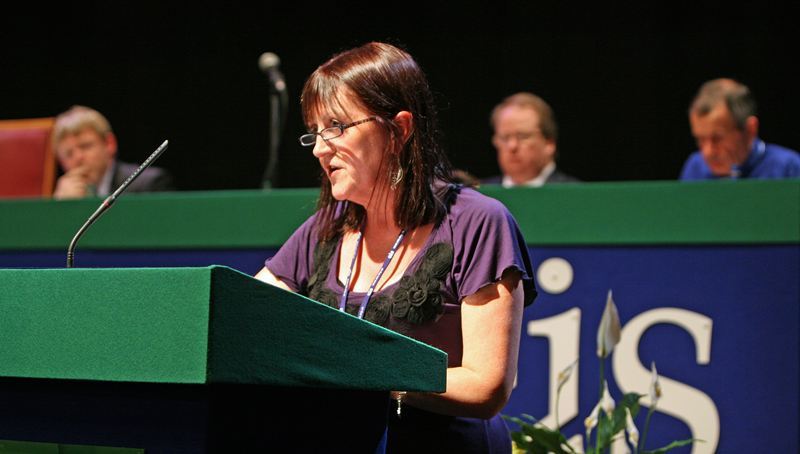The president of the EIS teaching union has called for the scrapping of the funding deal between the Scottish Government and local authorities.
Helen Connor said the concordat, which has given councils greater flexibility in the way they spend their budgets, was not working.
She told delegates at the union’s annual general meeting in Dundee that she wanted to see a “return to ring-fencing of budgets that way at least we know where the money is going and we are not in the middle of a blame game with Scotland’s young people falling through the hole.”
Ms Connor also attacked cuts in public spending and said full implementation of the Curriculum for Excellence at the start of the new school term in August was not possible.
The EIS has more than 60,000 members.
Around 300 delegates, from the union’s ruling council and 32 local associations, are attending the conference.
She told them the education service was “clearly under threat” and said the union should “once again question the deeply held belief that public sector cuts are inevitable.”
Ms Connor added, “Is it more important to spend money on Trident than it is to have smaller class sizes? Is it sensible to continue with the freezing of the council tax at the expense of supplies of pencils, photocopy paper etc, within our schools?”
Regarding the impact of the concordat, she questioned whether councils should be allowed to choose between cutting class sizes or offering free school meals, or whether the government should be promoting rights for children under additional support needs laws when councils were cutting back on the support staff needed to look after these pupils.Government “committed”Education secretary Mike Russell defended the agreement.
He said, “The Scottish Government is fully committed to the productive and effective relationship we have with councils through the concordat, which gives them the freedom, flexibility and respect to meet our agreed priorities and manage their own resources.
“With the removal of ring-fencing and a greater focus on local decision-making, wasteful bureaucracy is reduced and councils can focus on delivering services that meet local needs.”
During her speech Ms Connor also referred to a recent survey by the General Teaching Council for Scotland which found that only 30% of the teachers who qualified in 2008/09 have found permanent jobs so far of which she said the country should be ashamed.
To loud applause, she said, “Should we as a country be sitting back watching our very well trained probationary teachers having to look for employment furth of Scotland?”
She stressed that the union remained committed to the principles of the Curriculum for Excellence, which is meant to give teachers greater flexibility in what and how they teach, but said there was still confusion in schools.
Last month school inspectors announced it would be suspending inspections of secondary schools between August and December to allow it to provide extra support during the implementation of the Curriculum for Excellence.
Ms Connor said this was a step in the right direction, but added, “Unfortunately this suspension only occurring in the secondary sector perpetuates the myth that all is well in the primary sector.”
Mr Russell said, “Curriculum for Excellence is building on the strengths of Scottish education.
“It is being rolled out to all secondary schools this August and I am in ongoing discussions with the EIS to address any concerns they have.”
